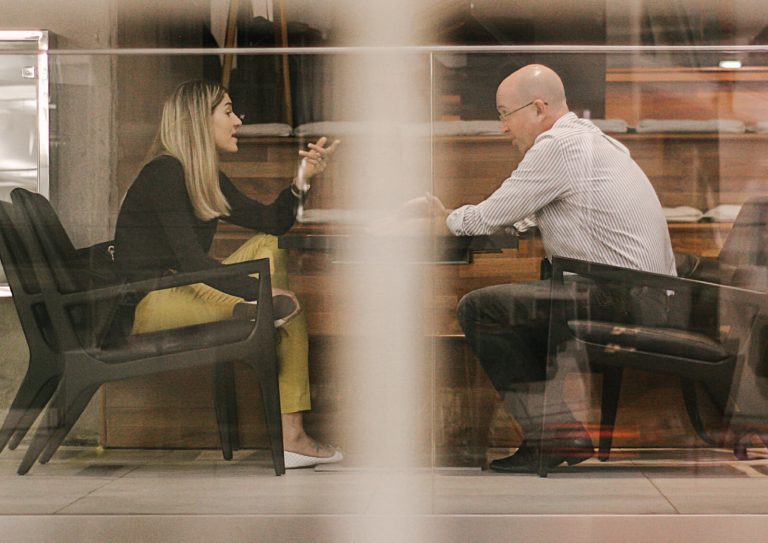If you find that you struggle with social awkwardness, there is a lot that can be done to work through it. Learn how to manage this common experience.
Have you ever found yourself at a party, feeling uncomfortable and unsure of what to say? Perhaps you laugh at the wrong moment, or just feel downright awkward. If you’re nodding, you’re in good company – feeling socially awkward is a very common experience.
Social awkwardness can often happen to those who are very shy, people who are introverted, those who enjoy smaller crowds as their comfort zone, and those who are in unfamiliar territory and don’t know the social norms. For example, someone who lives in a remote community could come to a large city gathering and just not easily fit in.
What is social awkwardness?
Social awkwardness isn’t a diagnosable mental health issue – it’s more of a pattern of experiences and feelings that show up in your life. It can be uncomfortable to experience, but it’s very common, and not necessarily always a bad thing. For example, you might find that you struggle with small talk, but can deep dive into serious topics such as politics.
While social awkwardness isn’t a mental health issue in itself, some mental health conditions can lead to people having certain traits or hesitancies that make group participation more difficult.
While for some people it involves some embarrassing verbal blunders, for others it can be quite severe. Some people can be so preoccupied by their difficulties that they become very socially isolated, even housebound, feel depressed and hopeless about change.
The good news is there are lots of things that can be done to work through social awkwardness.
Here are our six tips for helping you navigate social awkwardness.
1. Nail the problem
Do an inventory of where you feel comfortable and where you get stuck. Work with your strengths and then add on bit by bit. Don’t try everything at once. For example, you may feel OK hanging out with your close friend, but out of your depth at a big party.
2. Start small
It may be better to get used to being one on one and build skills with smaller numbers. You may come to realise it’s more about big groups than social inadequacy all the time.
3. It’s about them, not you
Everyone loves a good listener. While you might be worried about carrying a conversation, asking just a few questions and then following the other’s lead, gives you room to breathe and makes you good company.
4. Take it easy
Plan social occasions that are doable for you. Suggest a movie over a dinner party for example, so you are out and yet not compelled to be the life of the party. You also have conversation ready to go afterwards.
5. One skill at a time
In a social situation, just decide to try one new thing. It might be to maintain eye contact, or stay 10 minutes more than usual, or be brave enough to suggest coffee with one new person.
6. Listen to feedback
Usually, others around you don’t see you as as awkward as you feel on the inside. If others reassure you, take that in, don’t dismiss it. Feeling self-conscious can be very convincing but is not always the truth about how you come across. Not many people feel comfortable and socially successful all the time.
It’s good to remember that social awkwardness is relatively common, so you don’t need to suffer alone.
If you’ve tried these tips and feel like you need more help, seeking professional support might be the answer. If you feel like you need additional support, Relationships Australia NSW offers individual counselling.
Related Services & Workshops

Accidental Counsellor
Accidental Counsellor is a workshop to assist people who aren’t trained counsellors, but often find themselves in a counselling role “by accident”. You’ll learn how to support clients, friends, family, colleagues, and strangers in distress or experiencing a crisis.

Counselling.Individuals.Older People.LGBTQIA+
Individual Counselling
Life can be full of ups and downs. While we may be able to overcome most challenges by ourselves, sometimes we need some extra support. Individual Counselling offers a supportive environment to identify and manage problems and concerns.

Group Workshops.Individuals.Mental Health
Self Esteem and Communication for Women
This program offers women strategies to help develop self-confidence, communication skills and conflict resolution abilities. It's ideal for those who have experienced difficulties in relationships, including abuse.






